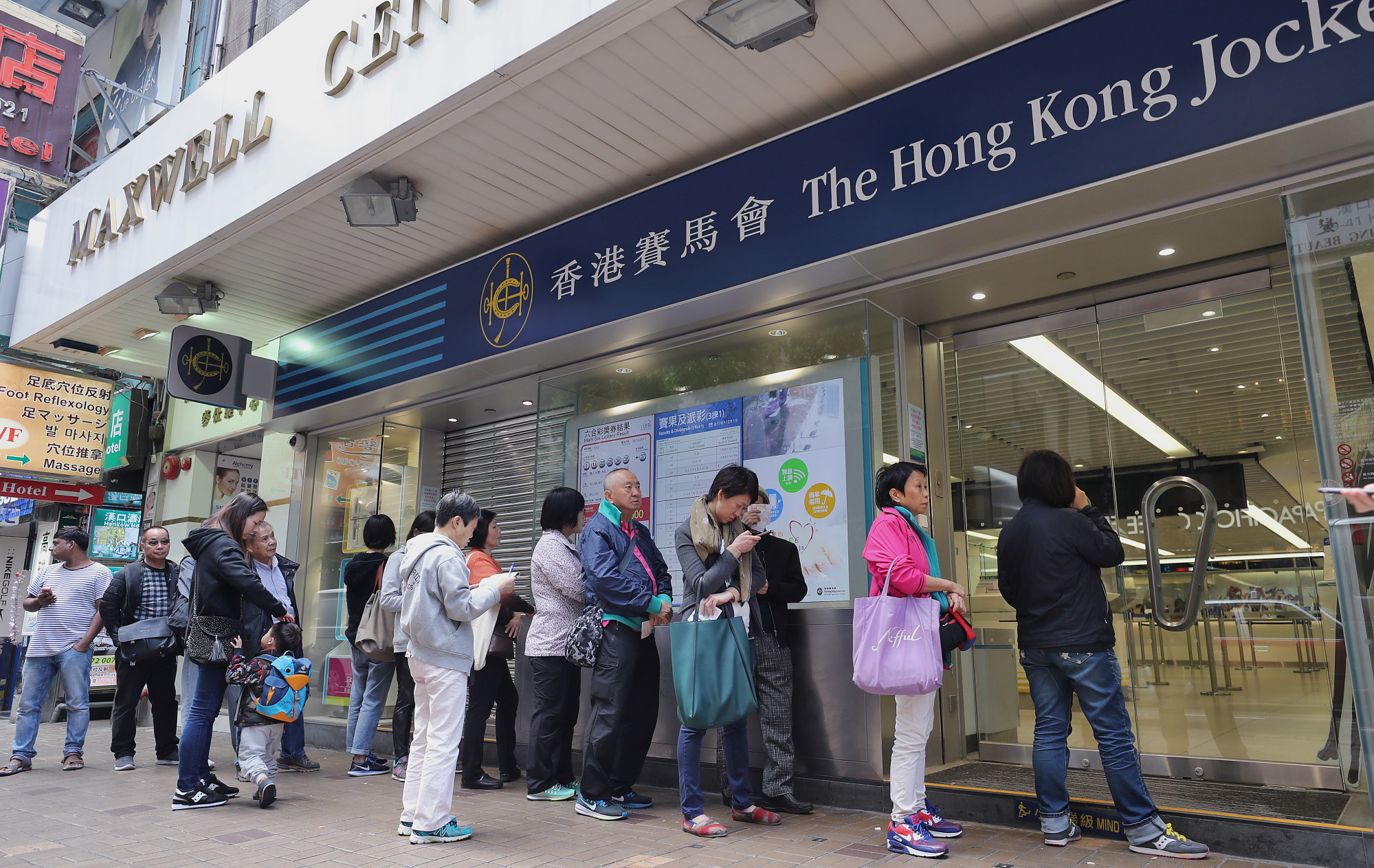
Hong Kong Jockey Club ponies up HK$5 billion to boost effectiveness of charity in city, region and further afield
- Chief Executive John Lee tells Hong Kong Jockey Club Charities Trust conference city can develop into “major international philanthropic centre”.
- He highlights response to disruption caused by record-breaking rainstorm as proof city has capacity to be “charitable hub”.
The Hong Kong Jockey Club is to spend HK$5 billion (US$638 million) to set up a charity research institute to promote a culture of philanthropy, with Chief Executive John Lee Ka-chiu expressing hope the city can become a “major international philanthropic centre”.
A conference organised by the betting giant’s charities trust on Monday heard that the club was committed to boosting charities in mainland China, Asia and other regions, as well as Hong Kong.
Lee told the Philanthropy for Better Cities Forum that Hong Kong’s abilities in the charitable field were underlined by the effort by people from all walks of life to deal with the aftermath of the record-breaking rainstorm last week, which caused massive damage and disruption.

“I was moved by the fact that volunteers, community leaders, civil servants, our district care teams, as well as different NGOs have promptly risen to the challenge, by lending their helping hands to those affected and assisting in the clean up of our streets and roads,” he said.
“The compassion and generosity of our community is heartening and vital to our rise as a charitable hub.
“Benevolence aside, it is also thanks to our world-class financial services sector, we offer an abundance of professional services, tools and resources for philanthropists to channel to social initiatives.”
“We aim to establish the Institute of Philanthropy as a dependable source of philanthropic knowledge and to leverage its resources to strengthen the professionalism of funders,” he said.
The fund will have HK$5 billion as seed money.
We are pleased to support Operation Santa Claus: Hong Kong stock exchange
The club chairman said the institute would become a forum where leaders, philanthropists and key stakeholders could exchange ideas and take part in city, regional and global events. Programmes will also be formulated to cultivate professionals in the philanthropic and non-profit sectors.
He added the institute would be expected to collaborate with Hong Kong and international universities, foundations and think tanks to carry out studies on philanthropy.
The two were speaking as a Nobel Prize-winning economist warned that the growth of artificial intelligence would create middle class hardship around the globe.
Abhijit Banerjee of the Massachusetts Institute of Technology in the United States, who shared the 2019 Nobel Prize for economics with two other specialists in the field for their work to alleviate global poverty, and Justin Lin Yifu, the former chief economist at the World Bank, also spoke at the conference.
Banerjee warned that the effects of artificial intelligence on the global socioeconomic structure “is not actually an idea that the political systems have digested” because the technology would eliminate middle-class jobs.
Operation Santa Claus raises HK$16.7 million to support Hong Kong charities
“If you think of middle-class jobs in India, which is business process outsourcing (BPO), or a BPO worker who does medical transcription, their jobs are going to go,” he said.
“It is going to have a very different effect in inequality than almost anything else that’s happened.
“What’s coming is actually something nobody has really handled. Most countries that have a welfare system have a welfare system for the poor. There’s going to be a bunch of new people who are going to be clobbered.”
The conference was designed to provide a forum for philanthropic, academic, business, social welfare and government leaders to explore the direction of the charitable sector in Asia and other regions for the 21st century.
Michael Lee said the event offered a “unique opportunity” to discuss how to solve the toughest challenges facing cities in the 21st century and how philanthropy could be used for the benefit of society.
More than 1,600 philanthropists, businessmen and social entrepreneurs signed up for the two-day event, which will end on Tuesday.
About 10,000 charities have been set up in Hong Kong, information on tax exemption showed.
The city’s business sector handed over about HK$4.3 billion in donations in the 2020-21 financial year. Individual donors gave a total of HK$7.8 billion over the same period.
Former Thai prime minister Abhisit Vejjajiva, who was among the panellists at the forum, said state assistance and philanthropy needed to “find their own comparative advantage” to achieve their goals.
“It’s important that we find that each country will have the right to exactly what you expect the government to deliver in terms of wealth,” he said.
“They need to design a system where growth creates wealth, which is very challenging.
“We might be able to teach people to fish. But if somehow, even if they were able to fish, sometimes the system takes the fish away or gives the biggest fish to, you know, capitalists or whatever.
“We need to fix that, so we need that fish to go up to global level and within countries.”
